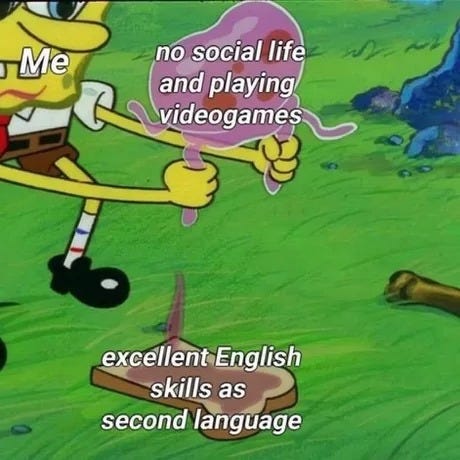Playing Games Can Help You Become Bilingual
Learning to count the power of games in language acquisition
Welcome, aspiring polyglot! Of all the things that helped me learn the languages that I know, playing cards with my friends probably made the biggest difference. While learning to count is fantastic, understanding how people interact with one another and seeing and hearing conversations between people, even before you understand them, is helpful. When children are small, before they learn their native language, they are often read to almost every day.
This same concept applies to adults who are trying to learn. Call it osmosis, call it incomprehensible input, call it exhausting, call it whatever you want, but the more exposure you have to the language the faster your language skills will develop. Playing games can make this onslaught of confusion less frustrating, because once you understand the rules you no longer have to speak the same language to enjoy each other's company.
Communicating with slang
When you are playing games with people, there will be more slang used than in a general conversation, but when you are going through the process of second language acquisition, this is a good thing. Slang is going to be something you can rely on for years to come and understanding the nuances of when and where to use it will be beneficial long after you progress beyond simply playing games. The average language learner, and average language teachers will almost entirely ignore this aspect in pursuits of having students focus on passing standardized tests. Unfortunately, an essay is not the place to practice your slang.



